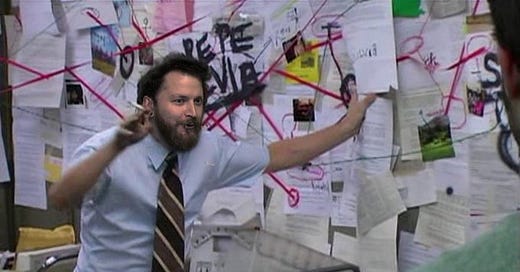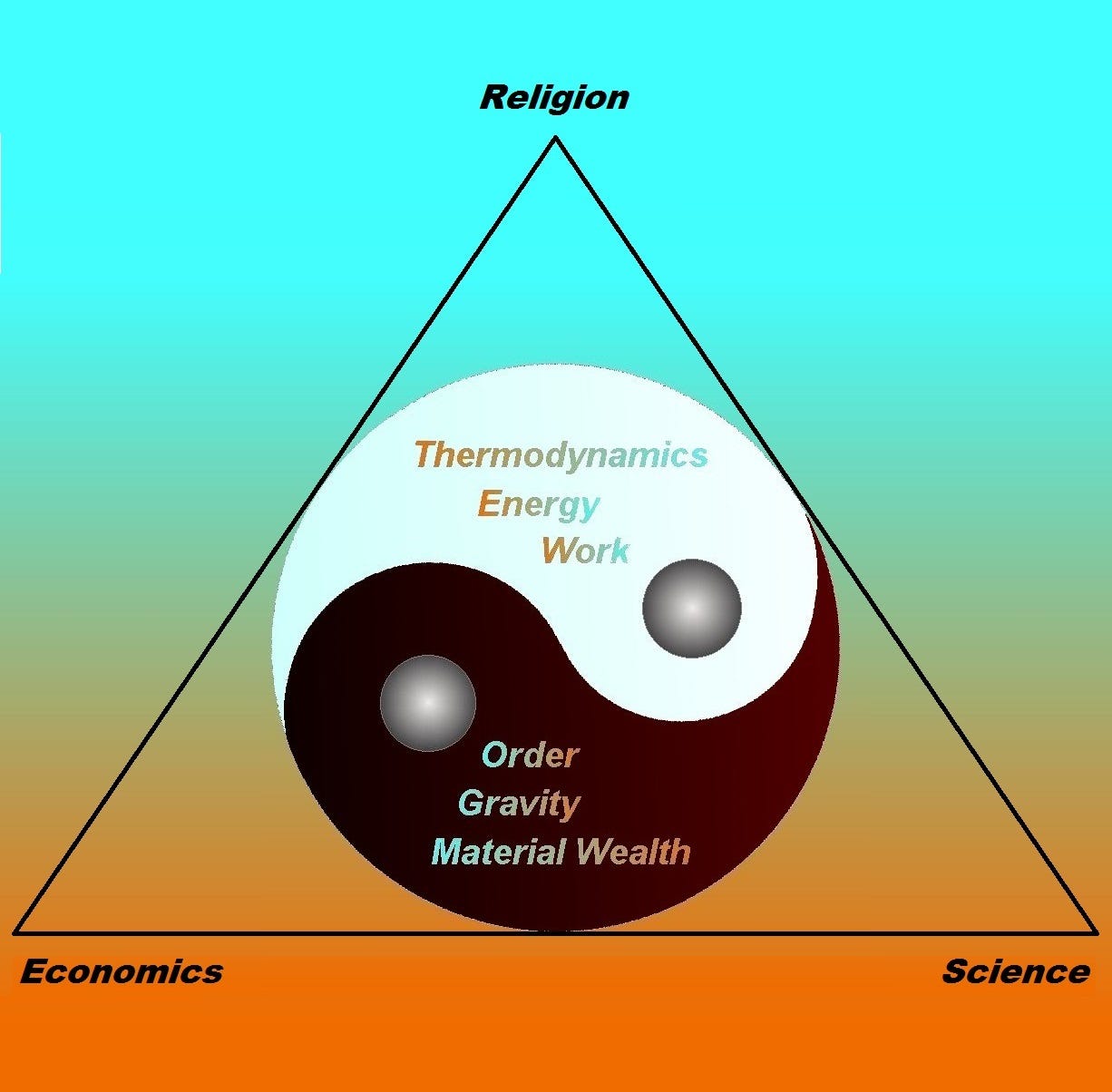But first:
Some lyrics from the iconic 60ies, when whatever you touched, worked; and, with few exceptions, before reaching midddle age, every person seemed to be slender.
These years or decades will go down in history as the last original expression of occidental culture for a very long time...
Wonderfully male assertive stuff, too!
(Even though having been co-written by a woman)
- The Third Bardo Lyrics -
I'm living somewhere in a new dimension
I'm leaving everyone so far behind
Don't waste any time, girl, step inside my mind
I'm 5 years ahead of my time
Look into my mind, look ahead, don't look behind
I'm 5 years ahead of my time
I'm doing exactly what I want to
Society can't play with my mind
If you love me, baby, come along with me
I'm 5 years ahead of my time
Look into my mind, look ahead, don't look behind
I'm 5 years ahead of my time
It may seem like I'm coming on strong,
But I know just where it's at for me
I'm through caring about their right or wrong
I've unlocked the door to life's mystery
Step inside my mind, look ahead, don't look behind
I'm 5 years ahead of my time
Look into my mind, girl, look ahead, don't look behind
I'm 5 years ahead of my time
https://www.youtube.com/watch?v=7R9u7T7LocY
Note: The “5” is arbitrary - it could be way more…
Now without further ado,
let’s go right into the heart of the matter
These are the three points of the triangle of the human condition:
Let’s go through them one by one with the question:
Can a man feed himself?
(Or could any creature, for that matter; and that almost gives it away right from the start: Animals, even the social ones among them, do not need money to remind them of what to do!)
1) Can a man feed himself, seen economically?
No - as he cannot finance his own overhead.
A short rundown:
Any action paid for is a service.
Can a man serve himself? Yes. And can he pay himself? Yes; any sum for any action. And that already gives it away.
Can he return a profit on paying himself for his own actions? No.
This, although obvious, is impossible for two reasons:
One, you can only pay yourself with what you have, or will have; the sum of payment and receipt is always zero.
That is the first law of economics.
Two, you cannot pay yourself net for gross: you cannot pay for your own overhead.
That is the second law of economics
[ I. e. you cannot clothe yourself without at least tree bark that you either have to get for free, or to go into debt for. Without foreign assets, you are still standing naked and hungry in the wilderness at the end of every payment to yourself. ]
Can two (or more) people pay each other for their service? Of course.
Does this alleviate the problem? No.
First and second laws apply.
Even with billions of participants.
For if everything one person does incurs a deficit by nature, then two or more persons doing anything will run up even more deficit - and there is no way around it.
[ Assuming, of course, that currency value stays stable over time, which it does not, hinting at a solution to the problem... ]
What problem?
The Chinamens’ Problem
In an old children's comic book story, some Chinese immigrants had established a “Chinatown” somewhere out West in the U.S. wilderness; and true to form, half of them had opened restaurants, the other half were running laundries; as it was their wish to live well-fed and clean, for each would be the other one's customer.
However, as it turned out, neither party could afford the service of the other.
And so, instead of living clean and satisfied, they would die hungry and dirty - *sob* - until the hero, listening to this tale of woe, took pity on them and drove a herd of hungry and dirty cowboys into town.
End of Story? Yes.
End of History? No.
Namely because this action simply kicks the can of credit down the road, by externalizing the debt incurred by feeding and cleaning, ultimately into some unsuspecting Third World country thus forced to hand over its resources for free, and so remain in utter poverty (and a sneaky feeling tells me that we've just now tried this one last time and it backfired, because, for one thing, in a globalized economy there IS no "Third World" - especially not one armed to the teeth - and therefore there is no place left anymore to hide and dump your accumulated and deliberated economic debt).
For as someone put it, it takes more and more dollars along the way (or what ever currency you may have) of debt to generate one dollar of GDP. This corresponds to any thermodynamic process, in which, within a theoretically closed system, each iteration is more costly and difficult than the one before, until the performing entity starves, suffocates and asphyxiates on its own waste, while overheating - which is no wonder, since all work performed is thermodynamic. One is the expression of the other.
If debt rises faster than GDP, then it still expresses all monetary wealth; which is thus decoupled from real wealth - inflation.
For as monetary and physical wealth is accumulated, so is debt, mirroring the monetary wealth 1:1. And this debt will not go away, as any commercial activity designed to make a profit on paper to “repay” the debt will just incur new debt, which must necessarily, in sum, be higher than the one repaid, for economic reasons (think about it…) as well as for thermodynamic ones.
Everything else is magical thinking.
And, in a globalized world, in the end there is nowhere for it to go.
And, just now, some are being awakened very rudely to these circumstances.
Put another way - taking the “Chinatown” example above - the original debt, which would kick start the economy, can never be gotten rid of, just kicked around or down the road; and, instead, it will be forced to grow to unmanageable proportions; not only (economically) by interest, but by the fact that restaurants (physically!) need food, and laundries need soap, and both need heat.
[This is independent of the economic system run in any particular country or currency realm; it goes for both "capitalist" and "communist" (or "socialist") systems - even for religious farmers and shepherds, as described below; probably even for the armband currency of hunters and gatherers. In the end, every currency collapses; "capitalist" systems just last longer, being, among other things, more adept in incurring and securing, then externalizing intricate constructions of debt and credit.]
And therein lies the Problem.
In the end, as a society, you cannot access your private savings as they are offset by the collective debt (unless, of course, you are powerful enough to do so).
Debt, Inflation and the Jubilee
”The Jubilee is the year at the end of seven cycles of shmita (Sabbatical years) and, according to biblical regulations” ... you may read the rest yourself…
Without going into controversy and detail, this is how the problem seems to have been solved in ancient times:
Before the accumulation of wealth and power could destabilize society, i. e. once every generation or so, societal debt was forgiven, and wealth redistributed, only for the insolvable problem to start off again (if this were instead a constant and continuous process, no payment would be possible, as every debt would have to be instantly forgiven, even that for a pair of shoes).
2) Can a man feed himself, seen scientifically?
No - as the second law of thermodynamics forbids it.
No living being could ever violate it. Not even attempt to.
Nor could the man-made mechanical self-substitutes.
Nor anything else which is thermodynamic in nature.
3) Can a man feed himself, seen religiously?
No - as the Lord provides. “Give us this day our daily bread”.
This, by the way, is the underlying justification for the religious solution to the problem as described above.
And that is why religion is needed: To realize we are dependent and necessarily destructive.
Even the modern secular ersatz-religions work on that principle, but by believing in scientific man-made temporary constructs they depend on the dependent, thus short-circuiting a mental loop that instantly turns into a vicious circle with no way out and no bottom, inevitably leading to an ever accelerating stationary whirlwind of inexhaustible fragmentation; a Dante’s Hell.
Or, to paraphrase others, only a society founded in stable, eternal, external religious law will itself stay stable; any society founded on the ever shifting sands of human interaction and the compromise of man will slip away and fall with the debate.
For only the agreed upon, unquestionably sacred and true can serve as a touchstone, in a realm where self-serving lies and babble prevail.
You need something absolute to serve as a frame and anchor to the relativity of the human concept - and this, most probably, goes for any possible aliens out there as well; as it went for the pharaohs of old.
This is the axiom of any society.
And what simple truth is hiding here?
That man may be forced to labor for his living - ever since the primal sin and his consequent expulsion from paradise - but that this does not make him a creator; he still can only degrade.
Indeed, the very circumstance that man has to toil to exist illuminates that fact; were it otherwise, i. e. were it not for the second law of thermodynamics, man could feed off himself and create value at the same time.
Even art is naught but a copy of something already there; or it would not be recognized as such.




